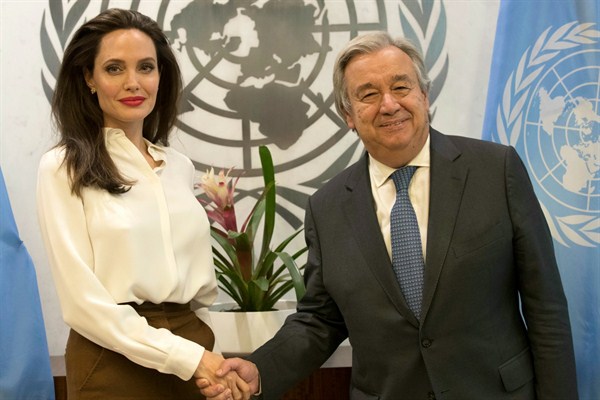Antonio Guterres is growing a little less enigmatic. Since becoming secretary-general of the United Nations in January, Guterres has often been a rather opaque figure. As I noted in July, he “tends to take decisions with a small circle of advisers, sidelining perplexed U.N. officials he thinks are not up to snuff.” There has been a good deal of grumbling in the U.N. Secretariat about the new chief’s management style, while human rights advocates have faulted him for failing to speak out strongly enough on global injustices.
But with world leaders gathering for a week of high-level meetings in New York during the annual General Assembly, Guterres has started to clarify his managerial, political and moral agendas. It looks like he may have succeeded in laying solid foundations to pursue a more ambitious leadership role from here on out.
He certainly needed to do some foundational work. The U.N. Secretariat and many of its agencies experienced a deleterious period of drift under Guterres’ stolid predecessor, Ban Ki-moon. The organization has been facing increasing budgetary pressure as it has tried to keep up with multiple conflicts and humanitarian crises. The election of Donald Trump as U.S. president, which surprised Guterres as much as it did everyone else, threatened to spark a major crisis in U.S.-U.N. relations with the potential to completely undermine his tenure.

